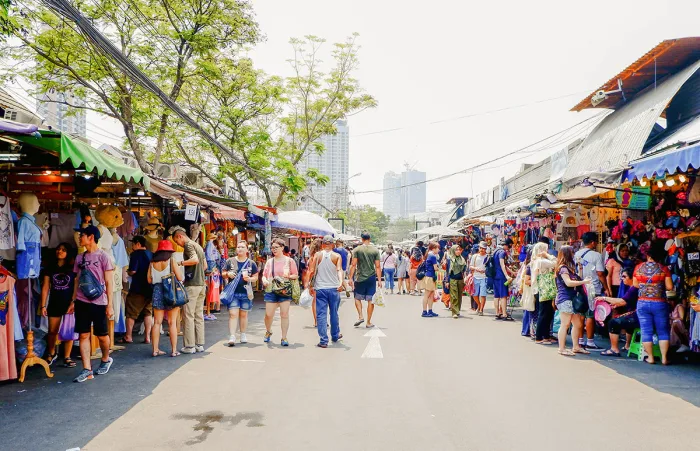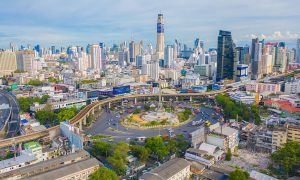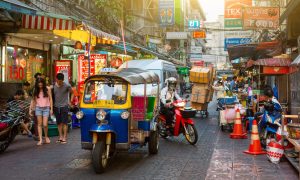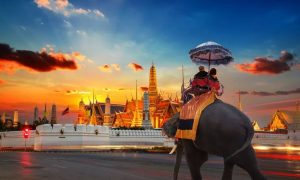These past few years."Immigration to Thailand" has become an increasingly popular topic. Against the backdrop of increasing pressure of life in China's big cities, many people are beginning to yearn for a more relaxed, balanced and livable lifestyle. Thailand, aptly fulfills these yearnings - sunshine, beaches, good food, low cost of living, and a tolerant culture ...... all make the heart yearn for more.
However, ideals are ideals, how is real life really like? Today we'll take you through the four most practical aspects - education, healthcare, real estate, and prices - and show you that theimmigrantsIs Thailand the "place where dreams begin" or the "place where the filter breaks"?
I. Education: International Schools are Diverse and Practical, Cost-Effective
If you are bringing your children to live in Thailand, then education must be one of your main concerns.
Thailand has over 200 international schools located in major cities such as Bangkok, Chiang Mai, Phuket and Pattaya. These schools offerA wide range of international education options, including the British and American systems, the IB program, the Cambridge system, etc.Most of the teachers are from Europe and the United States or have rich international teaching experience, and the language environment is pure.
More importantly.Tuition fees are much lower than those of international schools in China, Europe and the United States.For example, a reputable international school in Chiang Mai has a tuition fee of about 50,000 to 80,000 RMB per year, which is more than double the price compared to the 200,000 RMB available in China.
Of course, if you are not looking for the "international route", there are also many Chinese schools and local Thai schools in Thailand that are suitable for language adapted, life-oriented families.
Second, medical care: high-end private hospitals comparable to the United States and Europe, the cost can be controlled
Don't underestimate the Thai healthcare system, especially in the private hospital sector.Thailand has become the "No. 1 country for medical tourism in Asia".
In cities such as Bangkok, Chiang Mai and Pattaya, you can find a group of world-class private hospitals such as Bumrungrad International Hospital, Bangkok Hospital, Samitivej, etc.Advanced equipment, attentive service, many doctors have received medical training in Europe and the United States, English communication without barriers. There are also some hospitals that offer Chinese translation services, customized for foreigners.
The point is.The cost of these high-level medical services is only 1/3 or even less than that in Europe and the United States.The cost of hospitalization is very high. A specialist outpatient visit is about RMB 300-500 and a general hospitalization is about RMB 1,000-1,500 per night, making it very cost-effective. The cost can be further compressed if local insurance is purchased.
For middle-aged and elderly people, Thailand's healthcare system is perfectly suited to serve as a strong support for long-term retirement.
Third, real estate: freehold apartments can be purchased, rental and sale of both appropriate
Unlike many countries.Thailand allows foreigners to legally buy freehold condominiums(both uncompleted and second-hand), has become an important driving factor for many people to emigrate.
Bangkok, for example, the average price of high-quality apartments in the city center is about 30,000 to 50,000 yuan per square meter, while in Chiang Mai, Pattaya and other places, 1-20,000 yuan can buy a first-class landscape, well-equipped community housing. For the domestic first and second tier cities "house slaves", this is simply "freedom to buy a house".
In addition, Thailand has a very active rental market.Short and long term rentals are well established, with yield returns around 5-8%The "passive source of income" for many immigrant families.
It is important to note that foreigners cannot purchase land and can only operate on a lease (up to 30 years) or in the name of a company, and it is recommended to operate under the guidance of a professional lawyer to avoid legal risks.
Fourth, prices: monthly income of 5,000 can also live very comfortable
In many Chinese cities, 5,000 RMB is barely enough for rent. But in Thailand, 5,000 RMB is enough to live a comfortable and decent life.
As an example, the basic monthly expenses for a couple in Chiang Mai are roughly as follows:
| category | Average monthly expenses (RMB) |
|---|---|
| Rent (small apartment with air conditioning) | 1500 dollars. |
| Catering (mainly outside) | 1,000 dollars. |
| Water and electricity grid and transportation | 500 dollars. |
| Medical insurance or medical examination | 500 dollars. |
| Entertainment and Spare Change | 500 dollars. |
| total | Around 4,000 dollars. |
If you're on a budget, of course, your quality of life could be better. But even the basics can lead to a "lighter lifestyle" - no stress, more room to live.

Truth Summary: Real life isn't perfect, but it's "just right."
Immigration to ThailandIt does not mean that life has become a fairy tale. There are also realities here such as political instability, language barriers, and slowdowns. But if your goal is toLooking for a cozy, warm, low-pressure living environment, Thailand is definitely an option worth considering.

Especially for:
-
Middle-class families who want to live differently
-
Parents who desire international education for their children
-
Investors who want to diversify their asset allocation
-
Middle-aged and elderly people who wish to spend their retirement years comfortably
Thailand offers an inexpensive and stable "second life".






